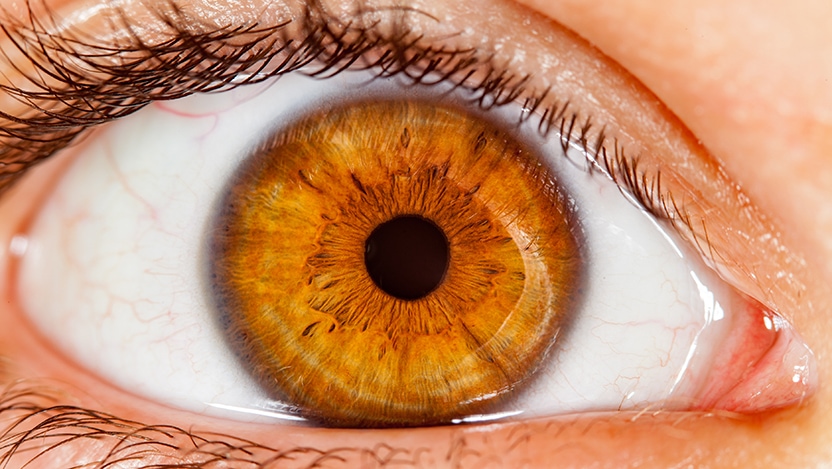Can Hypertension Lead To Eye Complications?

Hypertension, commonly known as high blood pressure, is a prevalent chronic condition that affects a significant portion of the global population. While hypertension is widely recognized for its adverse effects on cardiovascular health, its implications for eye health have gained considerable attention in recent years.
This article aims to explore the potential link between hypertension and eye complications by examining the underlying mechanisms, recognizing symptoms, identifying common eye conditions associated with hypertension, and discussing preventive measures and treatment options.
The objective of this article is to provide an overview of the relationship between hypertension and eye health, emphasizing the importance of managing hypertension to protect vision. By understanding the potential risks and implementing appropriate preventive measures, individuals with hypertension can take proactive steps to preserve their eye health and potentially mitigate the risk of developing eye complications.
Key Takeaways
- Complications of hypertension can affect the eyes.
- Surgical interventions may be necessary for severe ocular damage related to high blood pressure.
- Medications for hypertension help control blood pressure levels.
- Proper post-operative care is crucial for successful outcomes and healing.
Understanding Hypertension and its Effects on the Body
Hypertension, a medical condition characterized by high blood pressure, can have significant implications on various organs in the body, including the eyes. Understanding hypertension risk factors is crucial in managing its effects.
Several factors contribute to the development of hypertension, including age, genetics, obesity, and lifestyle choices. A sedentary lifestyle and poor dietary habits can increase the risk of developing hypertension. Regular physical activity and a balanced diet low in sodium and high in fruits, vegetables, and whole grains can help manage hypertension.
Hypertension can lead to eye complications such as hypertensive retinopathy, which involves damage to the blood vessels in the retina. It can cause blurred vision, retinal hemorrhages, and even vision loss if left untreated.
Therefore, adopting a healthy lifestyle and managing hypertension effectively is essential for preventing eye complications.
The Link Between Hypertension and Eye Health
Research studies have revealed a significant connection between elevated blood pressure levels and adverse ocular health outcomes. Hypertension, or high blood pressure, can lead to various eye complications.
The retina, a sensitive tissue at the back of the eye responsible for vision, can be affected by hypertension. This condition can cause damage to the blood vessels in the retina, resulting in a condition called hypertensive retinopathy.
Additionally, hypertension can also lead to optic nerve damage, known as hypertensive optic neuropathy. The exact mechanisms by which hypertension affects the eye are not fully understood, but it is believed to be related to the increased pressure within the blood vessels supplying the eye.
Therefore, it is crucial for individuals with hypertension to manage their condition through lifestyle modifications and regular blood pressure monitoring to minimize the risk of developing eye complications.
Recognizing Symptoms of Hypertensive Eye Complications
This discussion will focus on recognizing symptoms of hypertensive eye complications, specifically vision changes and blurry vision, as well as eye pain and redness.
These symptoms may indicate the presence of hypertensive retinopathy, a condition where high blood pressure damages the blood vessels in the retina.
Recognizing these symptoms is crucial in order to seek prompt medical attention and prevent further damage to the eyes.
Vision changes and blurry vision
Vision changes and blurry vision are common eye complications associated with hypertension. When blood pressure is consistently high, it can damage the tiny blood vessels in the retina, leading to changes in vision.
These changes may include a decrease in visual acuity, difficulty seeing fine details, or the appearance of floaters in the field of vision.
Blurry vision, on the other hand, occurs when the fluid-filled tissues of the eye become swollen due to increased pressure. This can result in a hazy or unfocused view of objects.
It is important to note that these symptoms may not be immediately noticeable and can develop gradually over time. Regular eye examinations are crucial for early detection and management of hypertensive eye complications.
Eye pain and redness
Eye pain and redness are commonly experienced symptoms associated with high blood pressure. Hypertension can lead to eye complications, including eye irritation and dry eyes. Eye pain can be caused by increased pressure in the blood vessels of the eye, which can result in discomfort and redness.
The elevated blood pressure can cause the blood vessels in the eyes to become narrow and constricted, leading to reduced blood flow and oxygen supply to the eye tissues. This can result in dry eyes, which can further contribute to eye irritation and discomfort.
It is important for individuals with hypertension to manage their blood pressure effectively to minimize the risk of eye complications. Regular eye examinations and proper management of hypertension are crucial in maintaining eye health and preventing potential vision problems.
Common Eye Conditions Associated with Hypertension
Hypertension has been shown to be associated with several common eye conditions. These conditions include hypertensive retinopathy, retinal vein occlusion, and optic neuropathy.
Hypertensive retinopathy is characterized by the narrowing of the blood vessels in the retina, leading to damage and potential vision loss.
Retinal vein occlusion occurs when a blood clot blocks a vein in the retina, resulting in sudden vision loss.
Optic neuropathy is a condition in which the optic nerve, responsible for transmitting visual signals to the brain, becomes damaged due to high blood pressure.
Several risk factors contribute to the development of these eye conditions, including the duration and severity of hypertension, as well as other factors such as smoking, diabetes, and high cholesterol levels.
It is essential for individuals with hypertension to monitor their blood pressure regularly and seek medical attention if they experience any changes in their vision or eye health.
Preventive Measures for Maintaining Eye Health
To maintain optimal eye health, it is crucial to adopt preventive measures such as regular eye exams, maintaining a healthy lifestyle, and protecting the eyes from harmful UV radiation. Regular eye exams can help in early detection and treatment of any eye condition, including those associated with hypertension. Lifestyle modifications, such as maintaining a healthy diet, exercising regularly, and managing stress, can also contribute to preventing blindness and other eye complications. Additionally, protecting the eyes from harmful UV radiation by wearing sunglasses and avoiding excessive exposure to sunlight can reduce the risk of developing certain eye conditions. By implementing these preventive measures, individuals can significantly reduce the likelihood of experiencing eye complications related to hypertension and maintain good eye health.
| Preventive Measures for Maintaining Eye Health | ||
|---|---|---|
| Regular Eye Exams | Maintaining a Healthy Lifestyle | Protecting the Eyes from Harmful UV Radiation |
Treatment Options for Hypertensive Eye Complications
This paragraph will discuss the treatment options for hypertensive eye complications, specifically focusing on medications to control blood pressure and protect the eyes, as well as surgical interventions for severe cases.
Medications are commonly used to manage hypertension and can also help in preventing or slowing down the progression of eye complications.
Surgical interventions may be necessary in severe cases where medication alone is not sufficient to manage the complications.
Medications to control blood pressure and protect the eyes
Antihypertensive medications are often prescribed to manage high blood pressure and mitigate the risk of ocular complications. These medications not only help control blood pressure, but they can also protect the eyes from further damage caused by hypertension. There are different classes of blood pressure medications that are commonly used, including diuretics, beta-blockers, angiotensin-converting enzyme (ACE) inhibitors, angiotensin II receptor blockers (ARBs), and calcium channel blockers. Each class of medication works in a different way to lower blood pressure and reduce the risk of eye complications. In addition to medication, eye protection strategies such as regular eye exams, maintaining a healthy lifestyle, and managing other underlying conditions like diabetes are crucial for preventing and managing hypertension-related eye complications.
| Medication Class | Mechanism of Action | Examples |
|---|---|---|
| Diuretics | Increase urine output | Hydrochlorothiazide |
| Beta-blockers | Reduce heart rate | Atenolol, Metoprolol |
| ACE inhibitors | Dilate blood vessels | Lisinopril, Enalapril |
| ARBs | Block angiotensin II | Losartan, Valsartan |
| Calcium channel blockers | Relax blood vessels | Amlodipine, Nifedipine |
Surgical interventions for severe cases
Surgical interventions may be necessary in severe cases of ocular damage related to high blood pressure. These surgical treatments aim to alleviate the symptoms and prevent further progression of the condition. Post-operative care is crucial to ensure successful outcomes and proper healing.
- Vitrectomy: This surgical procedure involves removing the vitreous gel from the eye and replacing it with a saline solution. It can help in cases where there is bleeding or scar tissue formation in the retina due to hypertension.
- Retinal laser photocoagulation: This procedure uses a laser to seal leaking blood vessels in the retina. It can be effective in treating diabetic retinopathy, a condition that can be exacerbated by high blood pressure.
- Trabeculectomy: In cases where hypertension leads to increased intraocular pressure and glaucoma, this surgery creates a new drainage channel to reduce pressure within the eye.
Overall, surgical interventions provide viable options for treating severe ocular complications caused by hypertension. Proper post-operative care is essential to ensure optimal recovery and long-term eye health.
Managing Hypertension to Protect Vision
To safeguard vision, effectively managing hypertension is crucial. This involves a combination of managing medications and making lifestyle changes. Medications can help control blood pressure levels, reducing the risk of eye complications. Lifestyle changes such as adopting a healthy diet low in sodium and saturated fats, engaging in regular physical activity, maintaining a healthy weight, and avoiding tobacco and excessive alcohol consumption can also contribute to managing hypertension. These interventions aim to reduce the strain on blood vessels, including those in the eyes, and promote overall cardiovascular health.
To illustrate the importance of managing hypertension, consider the following table:
| Interventions | Benefits |
|---|---|
| Medications | Control blood pressure levels |
| Healthy diet and exercise | Reduce strain on blood vessels |
| Avoidance of tobacco and excessive alcohol consumption | Promote overall cardiovascular health |
By implementing these strategies, individuals can effectively manage their hypertension and protect their vision from potential complications.
Conclusion: Taking Steps to Preserve Eye Health with Hypertension
In conclusion, managing hypertension is crucial for preventing complications that can affect eye health. By adopting certain lifestyle changes, individuals with hypertension can take proactive steps to preserve their vision.
Regularly monitoring blood pressure levels and adhering to prescribed medications are essential for maintaining optimal blood pressure control. Additionally, maintaining a healthy diet that is low in sodium and rich in fruits, vegetables, and whole grains can further support blood pressure management.
Engaging in regular physical activity, such as brisk walking or swimming, can also help to lower blood pressure. Furthermore, avoiding excessive alcohol consumption and quitting smoking are important lifestyle modifications that can contribute to better blood pressure control and reduce the risk of eye complications associated with hypertension.
By implementing these measures, individuals can protect their eye health and minimize the impact of hypertension on their vision.
Frequently Asked Questions
What are the risk factors for developing hypertension?
The risk factors for developing hypertension include age, family history, obesity, smoking, excessive alcohol consumption, high salt intake, and sedentary lifestyle. Prevention measures include maintaining a healthy weight, regular exercise, reducing salt and alcohol intake, and quitting smoking.
How does hypertension affect the blood vessels in the eyes?
Hypertension can lead to retinal damage and optic nerve damage. The elevated blood pressure associated with hypertension can cause abnormalities in the blood vessels of the eyes, leading to impaired blood flow and potential damage to these structures.
Can hypertensive eye complications be reversed with treatment?
The effectiveness of treatment in reversing hypertensive eye complications varies depending on the severity of the condition. Early intervention and blood pressure control can help prevent further damage, but complete reversal may not always be possible.
Are there any specific dietary recommendations to prevent hypertensive eye complications?
Dietary recommendations for preventing hypertensive eye complications include consuming a diet low in sodium and saturated fats, and rich in fruits, vegetables, whole grains, and lean proteins. Regular exercise is also beneficial in reducing the risk of such complications.
Is there a correlation between the severity of hypertension and the likelihood of developing eye complications?
The severity of hypertension has been found to be positively correlated with the likelihood of developing eye complications, including glaucoma and retinal health issues.








